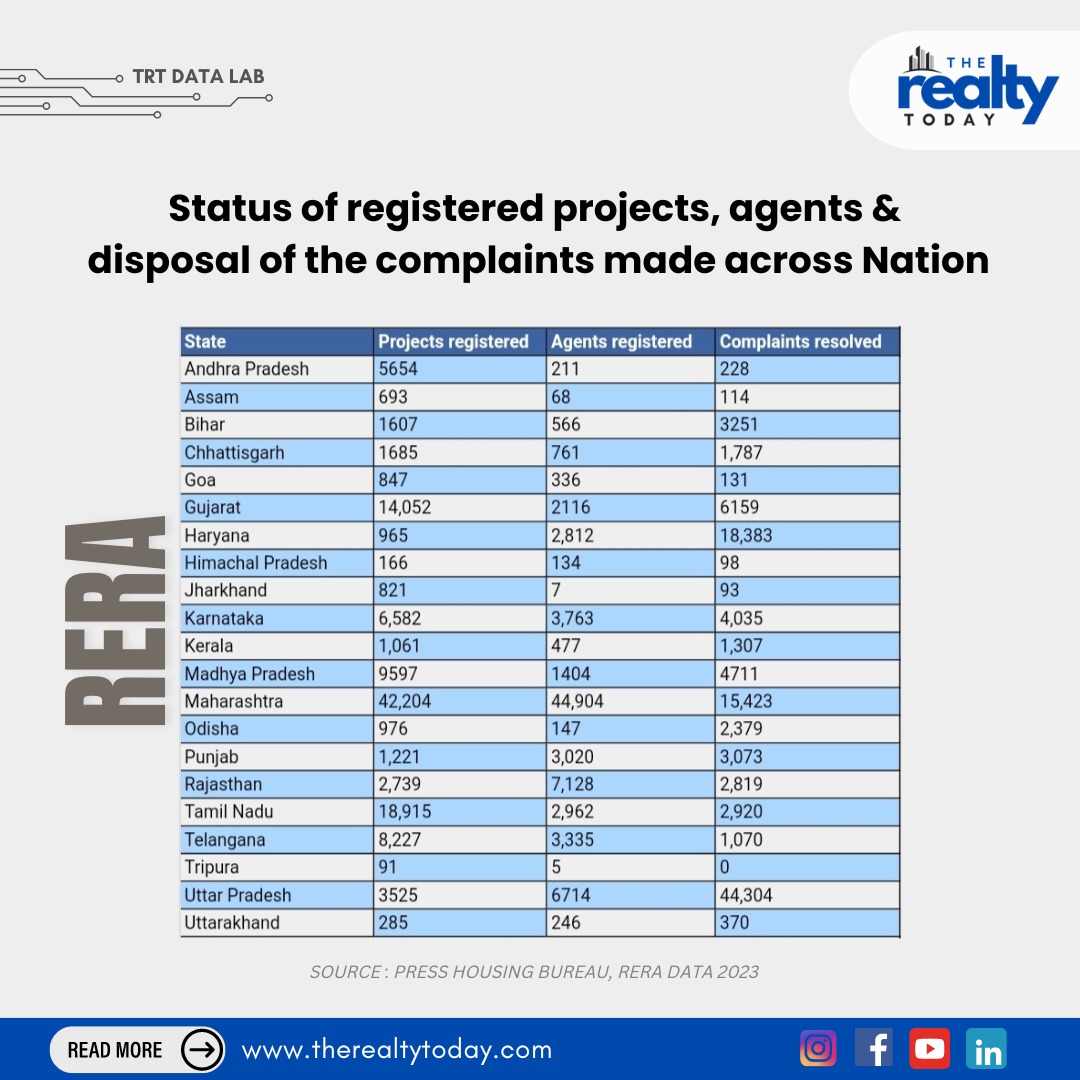The Real Estate Regulatory Authority (RERA), established under the Real Estate (Regulation and Development) Act, 2016, aims to govern the real estate sector efficiently, bringing transparency and protecting the interests of both buyers and developers. Enacted to regulate the unorganised real estate sector in India, RERA encourages accountability and financial discipline. Since its implementation, the sector has shown notable improvements in transparency, accountability, and consumer protection. The act requires every state to establish its own regulatory body to oversee the functioning of the real estate regulator. It mandates the registration of every real estate project and agent with the State Real Estate Regulatory Authority, ensuring developers comply with the regulations and provisions set forth by this authority.
RERA benefits buyers by mandating that developers provide every crucial detail about the project, such as timelines and financial and legal approvals, ensuring transparency for informed decision-making. For developers, RERA requires buyers to make regular payments like registration fees, maintenance charges, taxes, and installment payments, alleviating the burden of frequent payment defaults. Additionally, buyers must occupy the residence within two months of the occupation certificate, reducing the number of unoccupied properties. Thus, RERA approval is vital for both buyers and developers, ending real estate malpractices and offering protection and quality assurance, ultimately boosting the real estate landscape and contributing to a more equitable and fair sector.

To know about the complete details, visit- the-rera-numbers-key-insights-and-registration-stats-across-india









